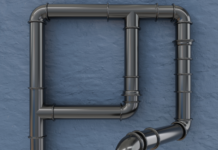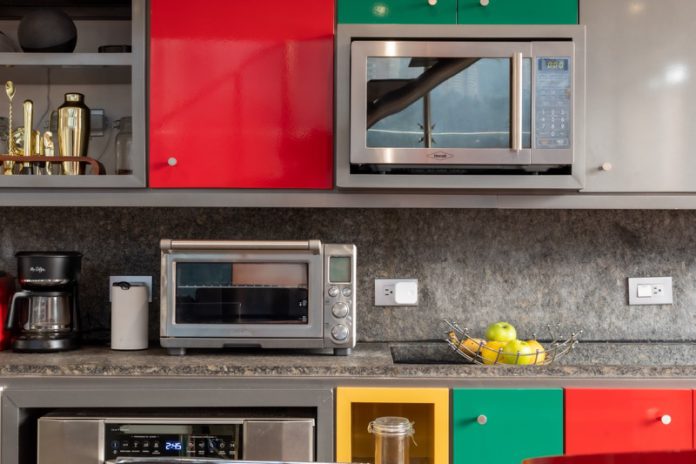Do you know why some appliances drastically lose value the moment you bring them into your home? It might surprise you to know that it’s not because they were faulty, but rather because of a handful of common homeowners mistakes. We all know the feeling of dread when a repair man tells us it’s going to cost an arm and a leg – or maybe it feels more like a leg – but fixing broken appliances is a huge unnecessary expense for anyone. In this post, we will explore these four common mistakes and how to avoid them.
Your dishwasher, refrigerator, and other household appliances are integral parts of your life. However, if you dislike the idea of throwing money away on replacements or on a Winnipeg appliance repair service, it’s important to maintain them so they last for years to come. It may not be easy, but with the help of this blog post you’ll learn 4 common mistakes that can ruin your household appliances.
1. Overloading your washing machine
Overloading your washing machine is a very common mistake made by people, especially those who have a large family.
There is a limit to the number of clothes that can fit into a washing machine and still get washed properly. This varies from brand to brand, but most washing machines will tell you what the maximum load size is on the care label. It’s important to read this label and adhere to it! If you overload too much, then you end up having to rewash the clothes.
Did you know that overloading your washing machine also voids the warranty? So it’s important to be mindful and not overload your washing machine.
The best way to avoid this is either:
A) Not to buy a big family sized washing machine.
B) To use your washing machine less often and wash smaller loads more often instead. This will also reduce wear and tear on your clothes as well as save you money in electricity costs as well as laundry detergent costs.
Rewashing is not just about wasting time and energy, but also money! If you’re tired of rewashing your clothes because they’re just not getting clean enough, then check out our newest washer and dryer cleaning products today and start saving yourself both time and money!
2. Not cleaning your dryer vent
Your dryer’s exhaust duct connects to the outside of your home, either through a wall or through the roof. A hole is drilled into the side of your house and a flexible exhaust hose attaches to the dryer. The dryer vent hose is approximately four feet long and is made of lightweight aluminum. It’s important not to bend or kink this hose as it releases hot air and makes its way through the hole in your wall or roof and out onto your roof or garage.
If you’ve noticed that your clothes take longer than normal to dry, you may have a lint buildup inside the dryer vent hose. When this happens, hot air can’t pass through as quickly as it should. This causes your dryer to run longer than necessary, which wastes energy and adds wear and tear on your machine. Also, if there is too much lint built up in the exhaust system, it’s possible that embers could escape into your home.
The best way to prevent lint build up in your dryer vent is by having it professionally cleaned every one to two years. Cleaning involves removing all lint from inside the exhaust duct, which usually means removing the vent from the wall or roof.
3. Leaving appliances plugged in
The worst thing you can do for energy-starved appliances is leave them plugged in when not in use. This wastes about one percent of your home’s energy. If you’re looking to cut down on your energy bill, this is the place to start. Unplugging or power cycling all of your electronics will save you money on electricity, time on maintenance, and prevent them from suffering early failure.
Plugging something into the wall does not instantly give it power. When the switch is flipped, it takes a few seconds for the power to come on. This is true of all devices that use electricity. Even if an appliance isn’t plugged in, it’s still drawing some amount of power just to be ready for its next use. This wasted energy adds up over time and can cause damage to an appliance’s motor or other components.
Being unplugged also prevents an appliance from suffering early failure. Most appliances have built-in circuits that help protect against overuse and overheating by shutting off the device once it has reached its limits. This circuit only works if the device is unplugged; otherwise it will continue running until it breaks down completely.
4. Leaving soap or detergent residue
Soap or detergent residue is the most common cause of appliance failure. It corrodes the seals, allowing air to get at the motor bearings, which burn out. Soap also reacts chemically with metal surfaces, producing a film that prevents their proper lubrication. Air pockets are another common problem caused by soap. The air pockets get in the way of smooth movement of parts and eventually cause them to break or bend out of shape.
The best way to guard against soap buildup is to wash dishes immediately after use, before they have time to dry. If you have a dishwasher, run it every day or two at high heat to kill bacteria and remove food particles that attract soap scum.
If your machine still has residue buildup but you’ve been running it regularly with hot water, try filling it with straight vinegar and running it through a cycle. And don’t forget to clean out the filter screen at the bottom of the machine!
If your dishwasher did eventually fail, you should contact dishwasher repair Winnipeg, to help you fix your broken appliance.








































